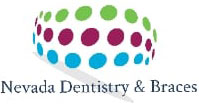Even a great-looking smile can hide bad breath, toothaches, and decay. So, how can you get a clearer picture of your overall oral health? Preventative care plays a crucial role—and dental X-rays can provide an even deeper insight into the health of your teeth. By creating clear, detailed pictures of roots, gums, sinuses, nerves, and jawbone, this technology helps your dentist stop issues in their tracks.
What Are Dental X-Rays? How Do They Work?
Dental X-rays, or radiographs, are images taken by exposing your mouth to a small amount of radiation. The imaging machine emits a beam that passes through your oral structures and creates an image on a digital sensor or film. These images allow dentists to evaluate areas of your mouth that cannot be seen with the naked eye.
What Can Different Types Of X-Ray Machines Do For Me?
- Intraoral Imaging Machines: These are the most frequently used type. They capture detailed images of individual teeth or sections of the mouth.
- Bitewing: These capture images of the upper and lower teeth in a single shot, helping dentists detect cavities, bone loss, & other dental issues.
- Periapical: These capture images of the entire tooth, from crown to root. They help diagnose root canal problems, evaluate tooth development, & identify abnormalities.
- Panoramic: These capture a wide-angle view of the entire mouth, including the teeth, jaws, & surrounding structures. They help assess oral health, impacted teeth, & jaw joint function.
- Extraoral Imaging Machines: These capture images of the oral & facial structures from outside the mouth. These machines are useful for obtaining an overview of the entire mouth & jaw area.
- Cephalometric: These capture side-view images of the head & skull, allowing dentists and orthodontists to analyze dental & skeletal relationships. This helps in planning orthodontic treatments & assessing facial growth.
- Cone Beam Computed Tomography (CBCT): CBCT machines utilize a cone-shaped X-ray beam to capture highly detailed 3D images of the teeth, jawbone, & surrounding structures. CBCT scans are particularly valuable for implant placement, orthodontic treatment planning, & evaluating complex oral conditions.
- Digital: These replace traditional film-based X-rays with digital sensors. They reduce radiation exposure, are immediately available, allow enhanced image manipulation, & are easier to store and share.
Preventative Care—Do I Need To Get Dental X-Rays?
If it feels like you just got a great check-up or nothing looks or feels out of place, you may wonder why you need an X-ray. Remember, teeth are constantly moving, and oral health can change at different stages of life. Medical conditions and medications can also affect your teeth. X-rays allow your dentist to check areas of your mouth that are not easy to see during a routine examination.
What Can Dental X-Rays Detect?
After capturing images of your teeth, roots, sinuses, nerves, and jawbone, dentists can identify and diagnose potential issues early, preventing further complications and more extensive treatment. This means you save time, money, and hassle in the long run.
- Tooth Decay: This manifests as cavities between teeth or beneath existing tooth restorations, such as fillings or crowns.
- Gum Disease: The first signs of gum disease are bone loss & periodontal pockets.
- Impacted Teeth: X-rays can determine the positioning & potential risks associated with impacted teeth, including wisdom teeth.
- Tooth Infections & Oral Abscesses: They can identify infections or abscesses in the root canals or surrounding tissues.
- Bone Health: X-rays can evaluate the jawbone for any signs of deterioration, tumors, or other abnormalities.
Are Oral X-Rays Safe?
Yes, dental X-rays are considered safe when performed by a dental professional. The amount of radiation you are exposed to during dental X-rays is minimal. Dentists and hygienists take precautions to minimize any potential risks. Technological advancements have significantly reduced radiation levels, making this procedure even safer for you and your family.
How Often Should I Get A Dental X-Ray?
The frequency of dental X-rays depends on various factors, including your oral health, age, and risk of dental problems. Adults with good oral health typically only require X-rays every one to two years, while individuals with a higher risk of dental issues may need them more frequently.
Should I Have Dental X-Rays While Pregnant?
If you are pregnant or suspect you might be pregnant, it’s important to inform your dentist. While dental X-rays are generally safe, additional precautions are taken during pregnancy to minimize radiation exposure. In most cases, non-emergency dental images are postponed until after the pregnancy.
Do Tooth X-Rays Hurt?
Dental X-rays are painless. You may experience slight discomfort when the imaging film or sensor is placed in your mouth, but the process is quick and generally comfortable.
How Long Will My Dental Images Take?
The time it takes to receive results varies. It will depend a lot on the machine your dentist uses. In most cases, the images are processed immediately, and your dentist can review them with you during your visit.
Can Kids Get Mouth X-Rays?
Yes, this procedure is commonly performed on children. They help dentists monitor the growth and development of teeth, identify cavities, and detect any potential orthodontic issues.
Schedule Your Dental X-Ray For Early Prevention
Regular dental check-ups and examinations are essential preventative dental care, but you don’t want to skip out on the benefits of advanced imaging technology. They are vital in maintaining a healthy mouth and preventing further complications. If you’re due for a dental cleaning, schedule an appointment with Nevada Dentistry & Braces in Las Vegas, NV, to experience exceptional dental care and the benefits of dental X-rays.



